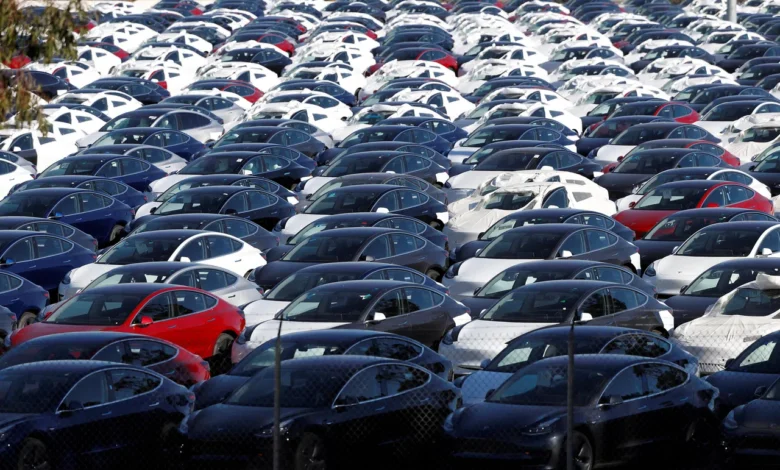As countries press on with climate targets, critical mineral shortages could scupper efforts: IEA

[LONDON] A looming scarcity of raw materials such as nickel and lithium could slash global production of electric vehicles (EVs), solar panels, wind turbines and other clean energy products, the International Energy Agency (IEA) warned in a new report.
A huge decline in the prices of key minerals is masking the shortage that is largely due to insufficient investment, the Paris-based organisation noted in its Global Critical Minerals Outlook 2024.
This was the second annual review of the world’s market for critical minerals. The agency, which works with countries to shape energy policies, said that the price of minerals dropped last year to pre-pandemic levels as supplies increased and overtook demand.
Critical metals such as lithium, cobalt, graphite, nickel and rare earths are the main raw materials used to manufacture clean energy products.
The IEA said it was worried that the lower prices could affect investment that is necessary to meet greater demand in the coming years, especially as more countries are taking steps to encourage motorists to switch to EVs.
The agency noted that about US$800 billion worth of investment in mining is needed by 2040 in order for the world to restrict global warming to 1.5 deg C from pre-industrial levels.
A NEWSLETTER FOR YOU

ESG Insights
An exclusive weekly report on the latest environmental, social and governance issues.
“Without recycling supplies, mining capital requirements would be around U$1.1 trillion,” the IEA report said.
Falling prices
After dramatic increases in 2021 and 2022 during the Covid-19 pandemic, the prices of critical minerals tumbled last year. Lithium slumped by 75 per cent, while cobalt, nickel and graphite fell by between 30 per cent and 45 per cent, said the report.
The lower prices were attributed to the slowing growth rate of EV battery sales, coupled with large-scale cell and cathode production that caused global inventories to be greater than expected, the report added.
“China’s expansion of battery plants, as well as cathode and anode production capacity, has far outpaced demand. This expansion has been a key driver behind the considerable build-up of stocks,” said IEA.
Since the start of 2024, prices of nickel and copper have recovered slightly, although lithium, cobalt and graphite remain depressed.
“Price declines are a double-edged sword. They are a boon for clean energy deployment but a bane for critical mineral investment,” said the IEA.
The agency has forecast that the total market size of critical minerals will more than double to US$770 billion by 2040, with more countries moving towards a net-zero emissions target by 2050.
The IEA said that projects that have been announced by various countries so far will only be able to meet 70 per cent of the world’s copper requirements by 2035, and just half of lithium requirements by that same year. The forecast assumes that countries are able to reach their respective climate change goals.
Some analysts have said that the IEA’s critical metal demand outlook is too optimistic, given that global sales of EVs in 2024 will be well below the agency’s prediction of 17 million.
“The prospects for electric vehicles remain positive, but industry forecasters are now trimming their estimates of production,” said Johnson Matthey, a London-based multinational chemicals and sustainable technologies company.
It estimates that global EV output will total around 13.5 million units this year, adding that automakers in China will continue to dominate and account for 60 per cent of EVs produced worldwide.
The IEA said in its report that China is the leader in the refining and processing of critical metals, with only 10 per cent of global graphite production taking place outside the world’s second-largest economy.
“Secure and sustainable access to critical minerals is essential for smooth and affordable clean energy transitions,” said IEA executive director Fatih Birol in a statement.
“The world’s appetite for technologies such as solar panels, electric cars and batteries is growing fast, but we cannot satisfy it without reliable and expanding supplies of critical minerals.”





